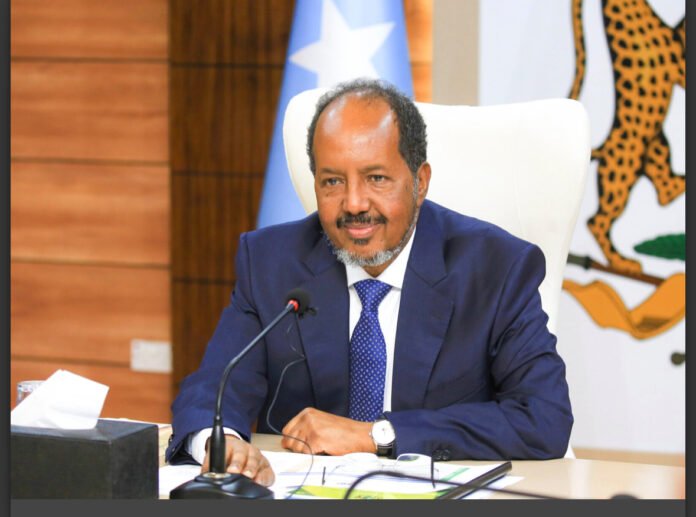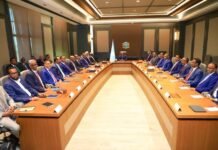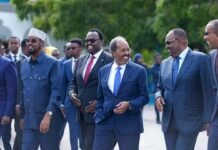MOGADISHU, (HAN) — Somali President Hassan Sheikh Mohamud has welcomed the decision granting Somalia full authority to independently manage, oversee, and report on its national human rights obligations. He described the development as a historic and transformative milestone in Somalia’s ongoing journey toward full sovereignty and statehood, more than three decades after the country’s governance structures collapsed.
In a statement issued by Villa Somalia, President Mohamud said the move symbolizes the growing confidence of the international community in Somalia’s institutional progress and its renewed capacity to safeguard the fundamental rights and freedoms of its people.
“Today marks a historic moment as Somalia takes a tangible step forward in strengthening its statehood and assumes full responsibility for promoting and protecting human rights at both the national and international levels,” President Mohamud declared.
“This achievement reflects the progress we have made in rebuilding our institutions, reforming our justice system, and fostering accountability and respect for human dignity across the country.”
The development follows the United Nations Human Rights Council’s decision to hand over full ownership of Somalia’s human rights mechanisms to the Federal Government, ending years of external oversight and technical management. For over thirty years, Somalia’s human rights reporting and monitoring were carried out in close coordination with international partners, primarily due to the country’s prolonged conflict and institutional breakdown following the collapse of the central government in 1991.
The President emphasized that the transition comes at a time when Somalia is consolidating peace, expanding governance reforms, and strengthening cooperation with both regional and global human rights institutions.
“Our government remains firmly committed to ensuring that every Somali enjoys the rights and freedoms guaranteed under our Constitution and international conventions,” he said.
“We will continue to work closely with the United Nations, the African Union, and all partners who have supported our journey toward peace, justice, and human rights for all.”
The Federal Government also reaffirmed its commitment to upholding the dignity and rights of all citizens, particularly women, children, minorities, and displaced persons who continue to face challenges due to insecurity, poverty, and limited access to justice.
Somalia’s Ministry of Women and Human Rights Development announced that the next phase will focus on building the technical capacity of national institutions to handle monitoring, reporting, and compliance independently. This includes training human rights officers, improving data collection mechanisms, and establishing local human rights committees in the Federal Member States.
Observers view this milestone as an indication that Somalia’s state-building process is gaining momentum, particularly in governance, rule of law, and international engagement. It also marks a broader shift in how Somalia is perceived globally — not as a fragile state under constant external administration, but as an emerging democracy reclaiming its place in the international community.





